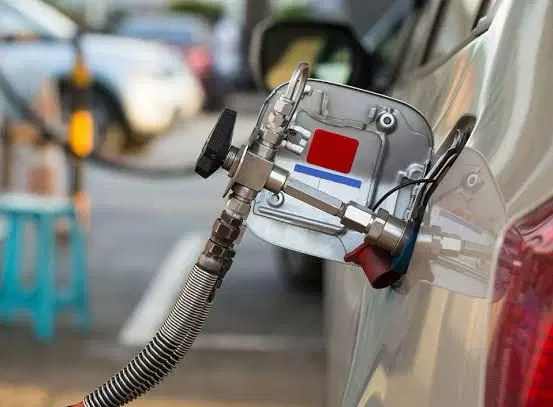The Nigerian federal government has introduced an online platform it calls, “Convert Now, Pay Later.” The platform will help Nigerians transit their automobiles from using Premium Motor Spirit (PMS) to more affordable and environmentally friendly Compressed Natural Gas (CNG).
The new online portal will allow vehicle owners to register and convert their petrol-fueled vehicles to CNG at government-accredited conversion centers, and defer the payment for the conversion costs over several monthly installments, according to a statement on X by the National Orientation Agency (NOA).
“Switching to Compressed Natural Gas (CNG) is now more accessible than ever. With flexible payment plans tailored to fit your budget, transitioning from petrol to CNG has never been smoother or more affordable. These payment options allow you to convert your vehicle now and pay later with affordable monthly installments at competitive rates. With an easy online application and quick approval process, you’ll receive support every step of the way to ensure a hassle-free experience,” the NOA statement stated.
Presidential CNG Initiative
The government says it plans to convert 1 million vehicles by 2027, and it hopes the conversion will help reduce road transportation costs by at least 40%. This is part of the Presidential CNG Initiative, which also plans to finance the acquisition of 200,000 new CNG buses and tricycles across Nigeria.
This government “Convert Now, Pay Later” scheme became necessary as Nigerians are facing high transportation costs, with PMS (petrol) prices soaring between ₦950 and ₦1,300 per liter in some locations from ₦180 it was barely two years ago.
Conversion Centers
Nineteen CNG conversion centers have been accredited nationwide including,
- Nigeria Institute of Transport Technology (NITT) Conversion Centre, Abuja
- Femadec Energy Limited Lagos
- Rolling Energy Limited Kaduna State
- NIPCO Gas Limited Ibafo, Ogun
Compressed Natural Gas (CNG) is a cleaner and more environmentally friendly alternative to petrol. It emits fewer greenhouse gases and pollutants, contributing to a reduction in air pollution and promoting a healthier environment. The adoption of CNG is also expected to enhance energy security by reducing dependence on refined crude which Nigeria has struggled to produce and often needs to import.
Comment, Like 👍, share this article, and Follow us on our social media handles.







